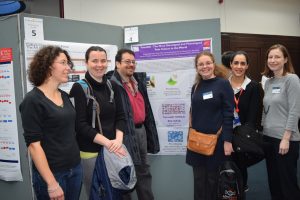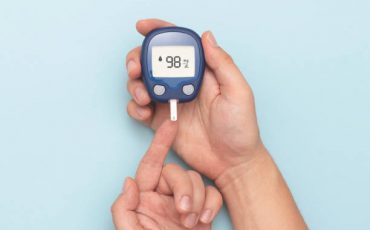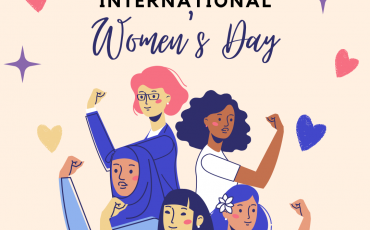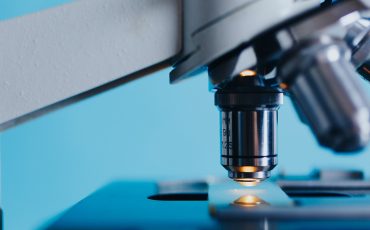The Department of Twin Research was pleased to have been invited to showcase our work at KCL’s ‘Big Data Day’, bringing together King’s researchers who are involved in a wide range of data-focused research, including its societal, political and ethical aspects. DTR students, post-docs and senior lecturers all came together to promote our research and create new collaborations at our DTR information stall and poster. To see our poster please click here.
TWINSUK – THE MOST GENOTYPED AND PHENOTYPED TWIN COHORT IN THE WORLD
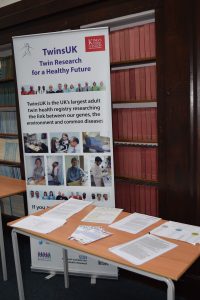 Our involvement in KCL big data day enabled us to reflect on nearly quarter of a century of collecting varied and extensive data on over 13,000 research
Our involvement in KCL big data day enabled us to reflect on nearly quarter of a century of collecting varied and extensive data on over 13,000 research  volunteers in order to understand how genetic variations relate to health, disease and ageing. This data collection has led to multiple collaborations with over 800 groups worldwide, resulting in over 600 research papers. Our research includes the collection of thousands of different types of genetic, biochemical and questionnaire-based data as well as data from microbiome studies that have revolutionised our knowledge of how closely our health is related to the bacteria that live in our gut. Such an extensive dataset has resulted in the TwinsUK cohort being the most investigated twin cohort in the world. The scope of its data provides a unique opportunity to investigate the relationship between our health, genes, environment and microbiome in a way, and to an extent that is unprecedented.
volunteers in order to understand how genetic variations relate to health, disease and ageing. This data collection has led to multiple collaborations with over 800 groups worldwide, resulting in over 600 research papers. Our research includes the collection of thousands of different types of genetic, biochemical and questionnaire-based data as well as data from microbiome studies that have revolutionised our knowledge of how closely our health is related to the bacteria that live in our gut. Such an extensive dataset has resulted in the TwinsUK cohort being the most investigated twin cohort in the world. The scope of its data provides a unique opportunity to investigate the relationship between our health, genes, environment and microbiome in a way, and to an extent that is unprecedented.
BIG DATA CHALLENGE
Congratulations must also go to three members of our team, Marianna Sanna, Stefano Andreozzi and Mark Simcoe who won this year’s “Big Data, Big Ideas” Challenge which took place on Big Data Day. The Challenge was an innovative interactive session designed to bring researchers together for rapid brainstorming to jumpstart exciting interdisciplinary projects. As part of the challenge, Marianna, Stefano and Mark, together with three other researchers in an entirely different field (social sciences and telecommunications) conceived an instrument for the analysis of migrations in developing countries. As a case study, they examined the migration of people from Northern to Southern Nigeria which they undertake due to seasonal weather and difficulties in accessing water and food for their cattle. They then showed that data can be integrated from mobile phone usage, social networks, NGOs, and the genetic profile of the cattle’s dung to build a model of the migration and to help improve the process. They are very happy to have won a bespoke workshop about ‘Engaging for Impact’ hosted by the Science Gallery London.
The Challenge showed how small ideas shared amongst KCL researchers from across the disciplines can have a big impact on health and society.




